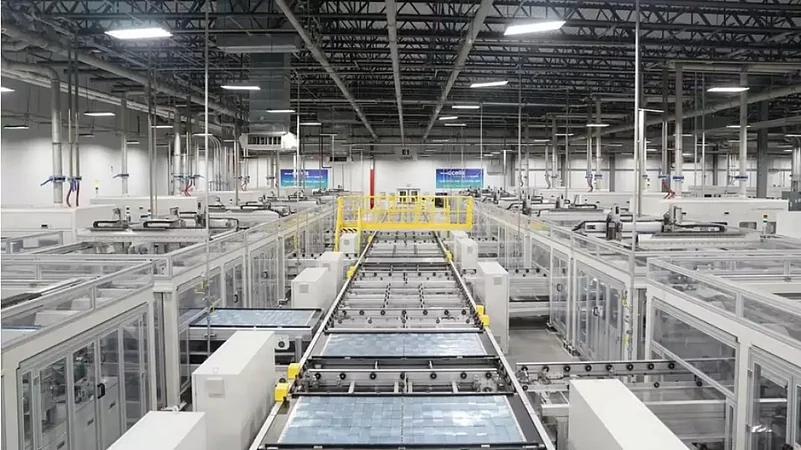Qcells, a South Korean company, announced on Monday that it has entered into a significant agreement with Microsoft (MSFT.O) to provide 12 gigawatts of solar panels made in the USA. This deal, described as one of the largest of its kind, is set to continue through 2032.
This agreement secures a substantial and consistent demand for solar panels to be manufactured at Qcells' newly established $2.5 billion factory in Georgia. Microsoft, in its quest to mitigate supply chain vulnerabilities, has found a dependable panel supplier through this deal, which aligns with its target of achieving 100% renewable energy usage for its operations by 2025.
"How do we really make sure that we can meet those goals in this kind of an environment, as we see others coming in and doing the same thing?" Bobby Hollis, Microsoft's vice president for energy, said in an interview. "We have to really undertake things in a very strategic and thoughtful way."
Initially, the two companies had entered into a 2.5-gigawatt contract one year ago. With this extended agreement, Microsoft is substantially increasing its overall commitment to 12 gigawatts, a capacity sufficient to provide energy for approximately 1.8 million households, as stated by the companies.
Qcells expressed that its partnership with Microsoft will enable the company to develop a solar supply chain within the United States, positioning itself as a competitor to China in the industry. This comprehensive supply chain will encompass the production of silicon ingots, wafers, cells, and the solar modules themselves.
Presently, the majority of solar panels assembled in the United States rely on components manufactured in Asia, benefiting from the significant price reductions seen in the past year. The incentives outlined in President Joe Biden's Inflation Reduction Act are designed to strengthen the domestic production of clean energy components, aiming to reduce the dependence on goods produced overseas.
"We are the only ones that are really building up the full supply chain. And this is thanks to the partnership that we're having with Microsoft," Jihyun Kim, an executive vice president at Qcells, a division of Hanwha Solutions Corp (009830.KS).























